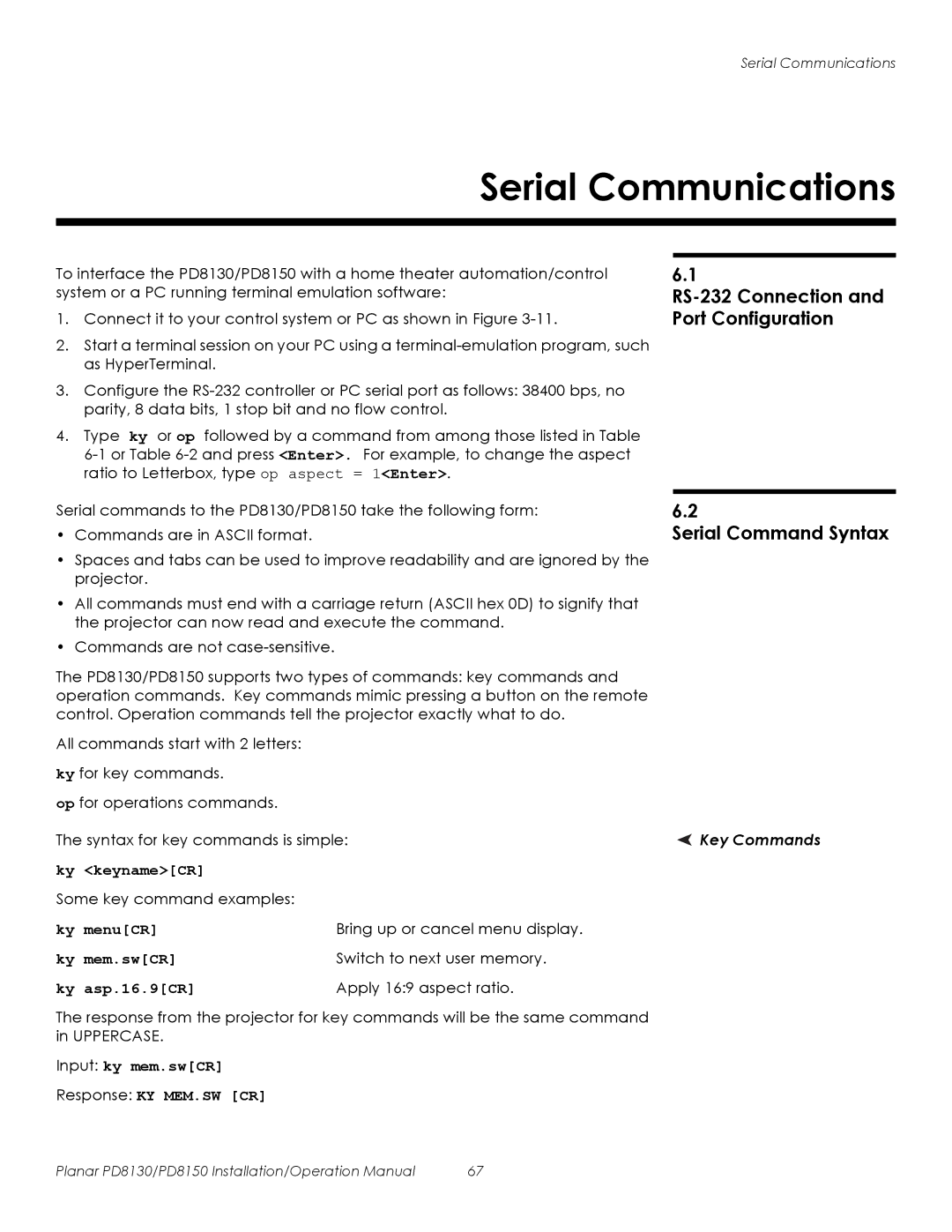
Serial Communications
Serial Communications
To interface the PD8130/PD8150 with a home theater automation/control system or a PC running terminal emulation software:
1.Connect it to your control system or PC as shown in Figure
2.Start a terminal session on your PC using a
3.Configure the
4.Type ky or op followed by a command from among those listed in Table
Serial commands to the PD8130/PD8150 take the following form:
•Commands are in ASCII format.
•Spaces and tabs can be used to improve readability and are ignored by the projector.
•All commands must end with a carriage return (ASCII hex 0D) to signify that the projector can now read and execute the command.
•Commands are not
The PD8130/PD8150 supports two types of commands: key commands and operation commands. Key commands mimic pressing a button on the remote control. Operation commands tell the projector exactly what to do.
All commands start with 2 letters: ky for key commands.
op for operations commands.
The syntax for key commands is simple:
ky <keyname>[CR] |
| |
Some key command examples: |
| |
ky menu[CR] | Bring up or cancel menu display. | |
ky | mem.sw[CR] | Switch to next user memory. |
ky | asp.16.9[CR] | Apply 16:9 aspect ratio. |
The response from the projector for key commands will be the same command in UPPERCASE.
Input: ky mem.sw[CR]
Response: KY MEM.SW [CR]
6.1
6.2
Serial Command Syntax
 Key Commands
Key Commands
Planar PD8130/PD8150 Installation/Operation Manual | 67 |
